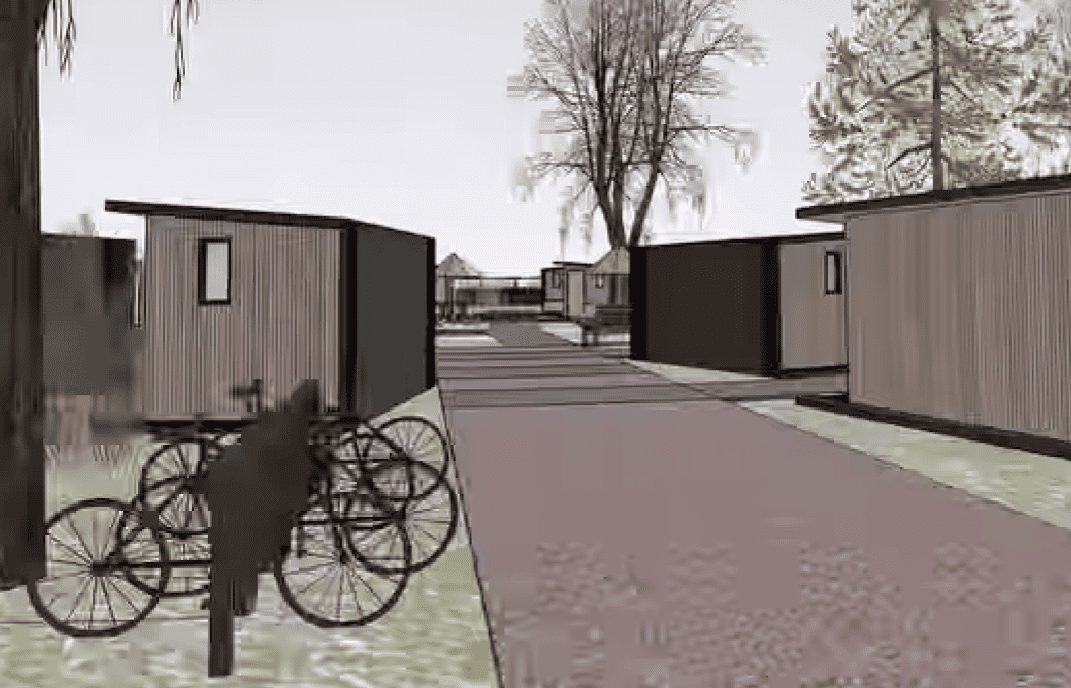‘Tiny cabin village’ for homeless sets sights on December opening in Hamilton
Published August 18, 2023 at 2:21 pm

The “tiny cabin village” that Hamilton has backed is aiming to get set up by December, thanks to donations from individuals, foundations and local businesses like Home Depot and Ikea. However, it will be costly to provide washroom and shower facilities accessible for those with mobility challenges, said a member of a non-profit that will operate the project.
The project of up to 25 tiny shelters, seen as a “temporary fix” to the homeless problem, is part of Hamilton’s encampment response, which City council ratified today (Aug. 18).
“The tiny shelters initiative is one tool to help up to 25 individuals find stability, safety and warmth in a supportive community,” said Tom Cooper, treasurer of the grassroots non-profit Hamilton Alliance for Tiny Shelters (HATS) and director of the Hamilton Roundtable for Poverty Reduction, in an email to hamilton.insauga.com.
HATS is spearheading the two-year tiny shelters pilot project, which won’t cost the City anything because it will be funded by donations and grants.
“We’ve been fortunate to have fantastic community support for the initiative,” Cooper said, noting Home Depot is providing some cabins and Ikea is furnishing the interiors.
For this project, the City identified the parking area on the Strachan Avenue linear park as a preferred site. The tiny homes will have security, supports and services, according to a report endorsed by council.
Cooper said the project has “big differences” from encampments. For instance, it has 8’x12′ structures with heating, electricity, a microwave, fridge and bed.
“It’s a lockable space that enables some privacy and safety for the residents,” he said. “We’ll also be staffing the tiny cabin village 24/7 and providing security; most tent encampments are organically developed communities of individuals who are unhoused who band together for companionship, assistance and sometimes safety.”
The cabins won’t have running water or toilets inside but there will be a common facility on site for toilets, showers and a kitchen facility.
Cooper said HATS is partnering with community organizations to provide supports related to mental health and addictions to help people “heal and then prepare for affordable, supportive housing options once they become available.”
He said supportive housing provides assistance for vulnerable people who need help with daily living or maintaining their housing, from keeping their places clean to checking on people a few times a week to determine their needs.
With 1,600 people facing homelessness in Hamilton, he acknowledged that it’s not a solution.
“It’s really a temporary fix until solutions become available,” Cooper said. “The real solution is supportive, affordable housing.”
Possible residents of the site will be chosen based on the City’s “by-name list,” a list prioritizing people with the greatest need of housing.
With many opposed to having encampments or homeless people living near their homes, he recognizes how the issue has divided residents.
“The issue of encampments has been very polarizing in Hamilton, while almost everybody acknowledges the right to housing, the question around where unhoused people can stay in the meanwhile creates a lot of division,” Cooper said.
The City decided against having “sanctioned encampments” for now. Under the newly approved encampment protocol, small clusters of tents can stay together as long as they are 100 metres from playgrounds, schools and daycares and 10 metres from private properties.





